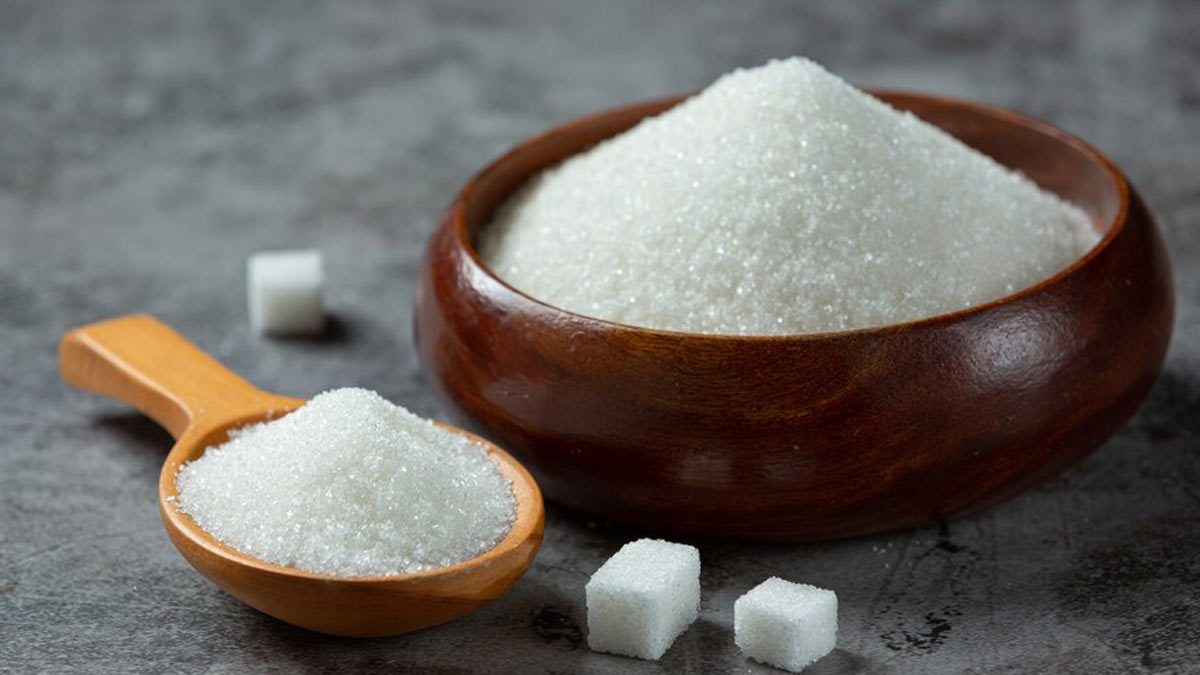
Sugar is a common ingredient in most households. From tea, coffee, and other beverages to cakes, cookies, and crepes, everything contains sugar. While moderate consumption is safe, excessive sugar intake can lead to various short- and long-term health problems, say experts.
Table of Content:-
In an interaction with the OnlyMyHealth team, Dr Srabani Mukherjee, Dietitian, Fortis Hospital, Anandapur, shares how too much sugar in one's diet can have a significant impact on health, increasing the risk of serious health conditions. Moreover, she discusses the need to go on a sugar detox and explains how long it could take for the body to get used to it.
Also Read: 8 Warning Signs Of Low Blood Sugar Levels
Why You Should Cut Down On Sugar

The American Heart Association (AHA) emphasises that the body does not require added sugars to function properly and advises minimising their consumption.
Unlike naturally occurring sugars found in foods, fruits, and dairy products, added sugars offer fewer nutritional benefits.
Additionally, the UK National Health Service (NHS) suggests that adults should limit their intake of free sugars to no more than 30 grams per day, while children aged 7–10 should consume no more than 24 grams daily.
The AHA further recommends that men should consume no more than 36 grams (9 teaspoons) of added sugar per day, and women should restrict their intake to less than 25 grams (6 teaspoons) per day.
Exceeding the daily recommended intake of sugar can lead to a multitude of health problems like obesity, type 2 diabetes, heart diseases, liver problems, and dental problems, according to Dr Mukherjee, who adds that it's not just about eliminating sugar completely but about moderation.
“By making conscious choices and being aware of hidden sugars in foods, you can significantly improve your overall health and well-being,” she notes.
Is It Possible To Completely Cut Down Sugar From Your Diet?

The short answer is yes, according to Dr Mukherjee.
She says, “It's entirely possible to cut down on sugar completely from your diet. However, it's important to distinguish between added sugars and natural sugars.” These include:
Added sugars are those that manufacturers add to foods during processing. These are the ones that are primarily linked to health issues.
Natural sugars are found in fruits, vegetables, and dairy products. These come with essential nutrients and fibre, which help regulate blood sugar levels.
Dr Mukherjee highlights that eliminating added sugars is a healthier goal. Completely removing all sugar, including natural sugars, might be restrictive and unnecessary for most people.
Therefore, focusing on a whole-food diet rich in fruits, vegetables, lean proteins, and whole grains can significantly reduce your sugar intake while providing essential nutrients, as per the expert.
Also Read: What Are Normal Blood Sugar Levels? Know Range And Remedies To Control
How Long Does It Take For The Body To Get Used To Sugar Detox?

“The time it takes for your body to adjust to a sugar detox varies from person to person. Factors like your overall health, metabolism, and how much sugar you consumed previously play a role,” says Dr Mukherjee.
“Generally, you can expect to experience some withdrawal symptoms, such as headaches, fatigue, and cravings, during the initial stages. These symptoms typically subside within a few days or a couple of weeks. However, it may take longer for your taste buds to fully adjust and for your body to reap the full benefits of a sugar-free diet,” she adds.
How To Reduce Sugar Intake effectively?
While it can be challenging to reduce sugar intake, it is not completely impossible. With consistent effort, it's achievable, says Dr Mukherjee. Here’s how you can successfully accomplish your goals:
- Check the labels for added sugars.
- Prioritise whole foods, as they tend to have fewer or no added sugars.
- Opt for water instead of sugary drinks, or choose unsweetened tea or coffee.
- Make smart food choices, like having more fruits, vegetables, and whole grains over processed foods.
Conclusion
If you’re wondering how long your body will take to adjust to a no-sugar diet, understand that it varies from person to person. Experts suggest that the adjustment period can range from a few days to a couple of weeks. During this time, you might experience withdrawal symptoms such as headaches, fatigue, or irritability, but these are temporary. As your body adapts, you'll likely notice improvements in energy levels, mood, and overall health. The key is to be consistent and stay committed, especially if you're seeking long-term benefits.
Also watch this video
How we keep this article up to date:
We work with experts and keep a close eye on the latest in health and wellness. Whenever there is a new research or helpful information, we update our articles with accurate and useful advice.
Current Version